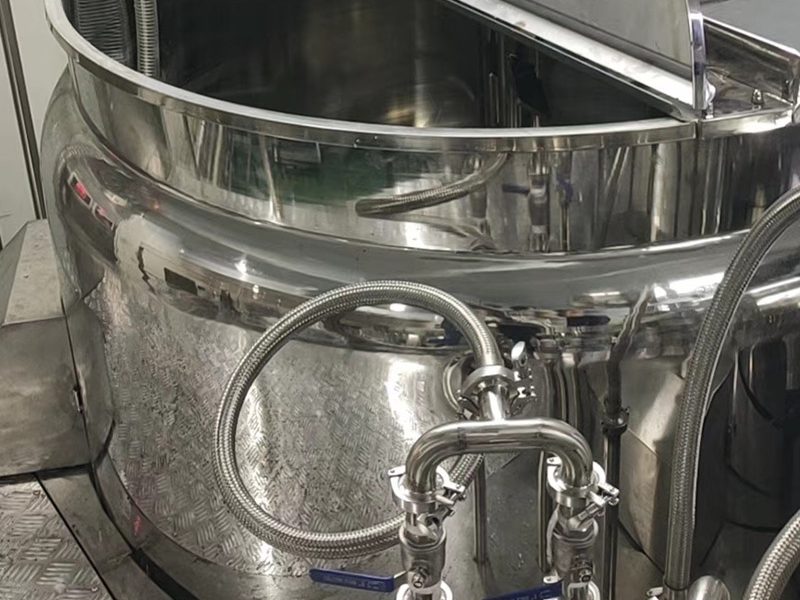
A stainless steel mixing tank with an agitator is a versatile piece of equipment widely used across various industries for mixing, blending, heating, and maintaining the consistency of different substances. Its robust construction, coupled with features like temperature control and customizable capacities, makes it a valuable tool for numerous applications.
Key Uses by Industry
- Cosmetics Industry
- Creating emulsions for creams, lotions, and serums.
- Mixing liquid soaps, shampoos, and conditioners.
- Homogenizing gels, masks, and other skincare products.
- Food and Beverage Industry
- Blending sauces, dressings, and syrups.
- Mixing dairy products like yogurt and cream.
- Preparing beverages such as fruit juices or liquid concentrates.
- Chemical Industry
- Producing detergents, liquid soaps, and cleaning solutions.
- Mixing industrial chemicals for various applications.
- Formulating adhesives, coatings, and other chemical products.
- Paints and Coatings Industry
- Preparing water-based paints, varnishes, and protective coatings.
- Ensuring uniform consistency in colorants and emulsions.
- Personal Care Products
- Manufacturing hand sanitizers, body washes, and liquid hand soaps.
- Mixing essential oils and perfumes into formulations.
- Household Products
- Producing dishwashing liquids, floor cleaners, and glass cleaners.
- Blending air fresheners and surface cleaning solutions.
Advantages of Using Stainless Steel Mixing Tanks
- Hygiene: Stainless steel ensures high levels of cleanliness, essential for industries like food and cosmetics.
- Temperature Control: Double-jacketed tanks allow for heating or cooling, enabling precise formulation.
- Durability: Resistant to corrosion and wear, ensuring long-term reliability.
- Versatility: Suitable for both low and high-viscosity products.
A stainless steel mixing tank with an agitator is indispensable for businesses requiring consistent, high-quality production. From cosmetics to chemicals, its adaptability and efficiency make it a crucial asset for modern manufacturing needs.
